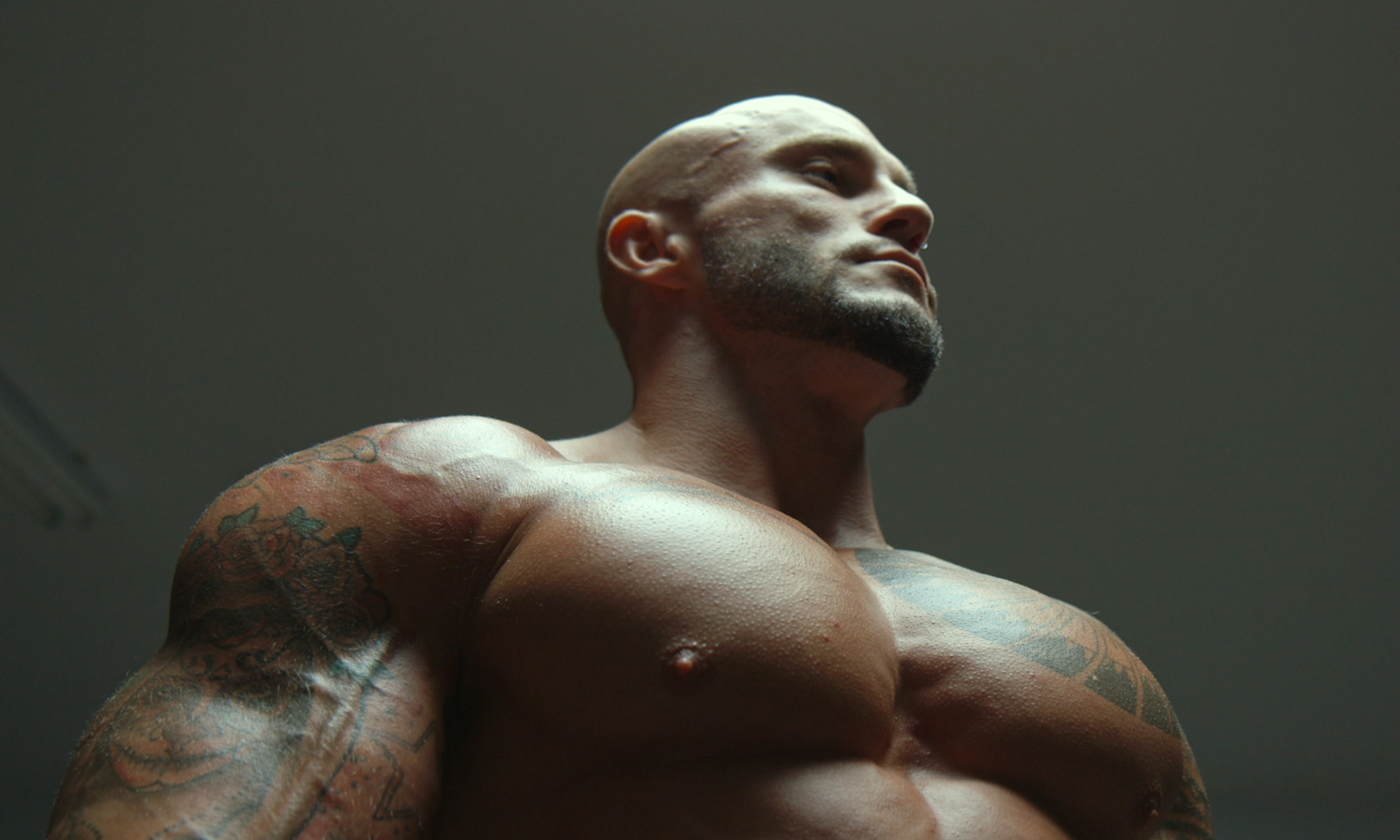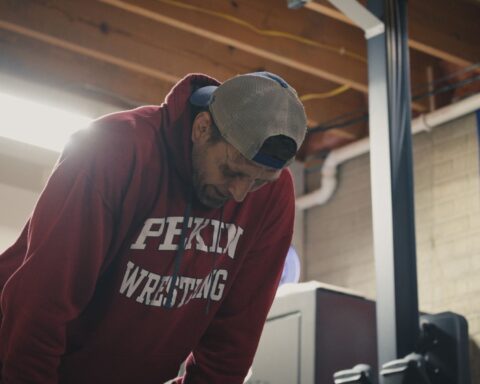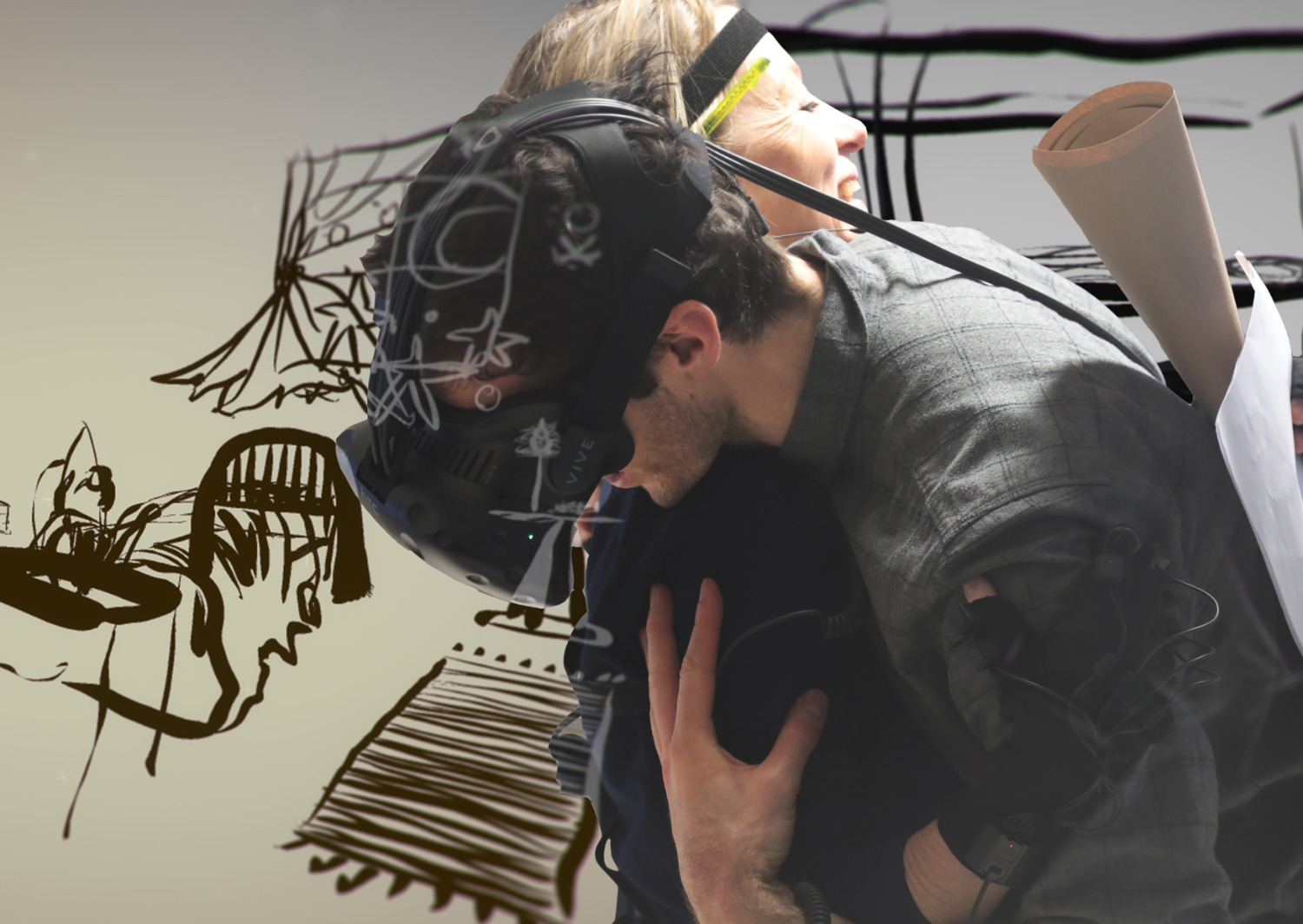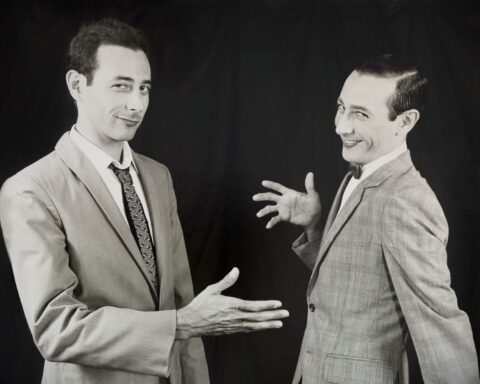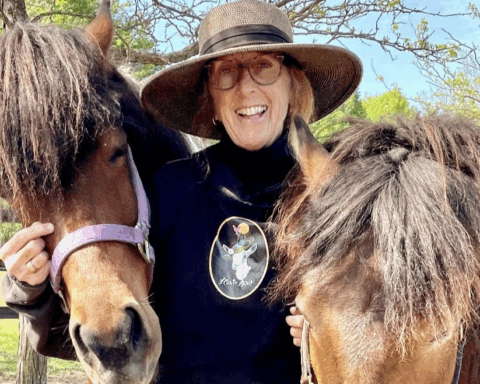“Masculinity and narcissism are everywhere,” observes Denis Côté. “This cocktail is fueled by superiority and inferiority complexes clashing in the same personality.”
In his newest film, A Skin So Soft (Ta peau si lisse), which has its North American premiere at TIFF and screens other fests including Vancouver, Calgary and Montreal’s Festival du Nouveau Cinéma, the Montreal-based Côté puts the male body on display. The film features six men—Jean-François, Alexis, Cédric, Benoit, Ronald and Maxim—who sculpt their bodies with a rigourous regimen of dieting, cardio, weightlifting and manscaping in pursuit of Herculean perfection. Despite the mix of testosterone and vanity, however, the film doesn’t serve an ounce of toxic masculinity.
A Skin So Soft makes a peculiar companion piece to Côté’s 2012 arthouse hit Bestiaire, which observed animals at Parc Safari in Hemmingford, Quebec. The camera in Bestiaire gazes upon the caged beasts in a series of long takes. The effect is much like being a kid in a petting zoo: one can stare, marvel at the creatures and enjoy exotic sights in a contained environment. After a while, however, it seems as if the animals are studying us.
A similar reversal of the gaze occurs in A Skin So Soft. Between selfies, photo shoots and ample flexing and posing, A Skin So Soft puts images of alpha males under inspection. Côté, without bias or judgement, observes gentle giants pursuing their passions. They’re formidable beasts and, like the animals of Bestiaire, they develop new shades of complexity the longer one observes them.
“It would be very hazardous on my part to start comparing individuals with animals,” Côté says, “but I’d say everything is a matter of distance, empathy, intimacy and respect. My camera is invited into a community, into a personal space, and I have responsibilities to consider. I was an intruder in Bestiaire. I am a guest in A Skin So Soft.”
WARM–UPS AND REGIMEN
The film walks into the subjects’ lives like a quiet houseguest respectfully keeping a distance while the hosts carry on their daily routines. Jean-François, for example, poses like a pensive warrior before he rinses his beard, balms his muscles and downs a shake to start his day. Côté and cinematographer François Messier Rheault watch the muscleman from afar, much like one might safely observe a horned ram at the zoo, as he begins the routine that keeps his body shipshape.
An impression of a lifestyle emerges as the bodybuilders begin their warm-ups. Alex delicately portions protein and grains before hitting the weights. Cédric eats a balanced breakfast of cereal, pills and YouTube videos before grabbing some cardio with the dog. Ronald loosens up on a massage chair and then snaps high-angle selfies, in a humorous bit of physical comedy involving an iPhone and a garage door opener, before spending quality time with his young child. Benoit, a spiritual kinesiologist, soothes a patient and finds serenity before the physical challenge. Maxim, not to be outdone, hauls a big rig across a parking lot before he roars.
There’s a natural progression to these scenes that eases viewers into the lives and routines of the men. A Skin So Soft tells the audience more about the bodybuilders’ worlds as the action moves away from the homes and into the gyms, workplaces and family gatherings to show how the bodybuilders find a workout/life balance. “Most of their lives are tight and insane daily routines,” remarks Côté. “It’s always with a bit o arrogance that I say that these films are free, instinctive and have no scripts,” he observes on the film’s narrative drive. “I do have notes, goals and a thinking process, and I always follow a sort of aesthetic or structural plan.”
HYBRIDITY
While Bestiaire falls more cleanly into the category of documentary, Côté describes A Skin So Soft as a hybrid film. Unlike recent hybrids like The Act of Killing (2012) and Aim for the Roses (2016) that overtly juggle drama and documentary, Côté’s film seamlessly weaves together non-fiction and fiction. One can hardly discern where one form ends and the other begins.
“I’ve always been obsessed with language and on how to navigate between fiction and non-fiction in the same film,” Côté observes. Côté nudges the bodybuilders into situations that one might call staged, but the movements, emotions and personalities the film documents are genuine.
“I knew I would follow six special individuals who have no need to belong to a group,” Côté continues. “They are all mostly fighting for personal gains and goals. But I definitely wanted to unite them together and guide them towards a sort of poetic or idyllic conclusion. That demanded scripting and preparation. Everything else was instinctive editing based on the hours of material that we shot. I felt we needed to seamlessly move from one character to another in the most impressionistic and fluid way.”
COACH CÔTÉ
The six bodybuilders have unique backgrounds and routines, but they share an obsession with physical perfection. The droll humour of Bestiaire meets the mundane drama of Côté’s 2009 film Carcasses and the mechanized repetition of Joy of Man’s Desiring (2014), both similarly offbeat hybrids. A Skin So Soft methodically lets audiences relate to these men using verité-style performances and long takes through which Côté’s signature style emerges.
Côté explains how the process of sculpting the bodybuilders into dramatic personalities entails its own routine. He notes that he observed the bodybuilders and interviewed them at length prior to filming. “I’d make a list of things they do on a regular basis, stage or find a moment when they do them, and regroup or assemble these moments in a day of shooting,” Côté says. “The guys were not familiar with my work and would not find time to watch anything. It took them weeks to trust me. I asked them to show me intimate moments at home instead of flashy performances at the gym.”
The rewards of the hybrid approach are twofold. “We couldn’t just stay long hours and immerse ourselves in each detail of their lives,” Côté explains. “It was too intruding and they were not comfortable and patient enough with the camera.”
Similarly, translating drama into documentary dissolves the subjects’ emotions into the observation process. “In this project,” Côté continues, “I knew I couldn’t trust the acting skills of my protagonists, but I could trust their passion and authenticity.” The immersion in the bodybuilding routines transfers onto the viewer the endorphin highs and adrenaline rushes the men experience as they push their limits.
THE GAZE
“For a while, watching that display of testosterone feels a bit cheesy or trashy, but very quickly, it becomes touching,” observes Côté. “Most of these men are children and are oversensitive. They are trying to achieve goals that not many people have the courage to reach.”
Côté’s camera gazes upon the bodybuilder’s rippling muscles, panning around to capture the full circumferences of pecs the size of dinner plates. In one particularly striking portrait of Cédric modelling for an art class, the lens lightly caresses the skin, taking in every pore and bead of sweat. These men love to be looked at, and there’s an aesthetic pleasure in seeing one chiseled Adonis after another, a point that the men underscore by repeatedly posing for friends, photographers, girlfriends or themselves.
“I didn’t have to underline the narcissistic or image-obsessed aspect of their existences,” Côté adds. “It comes with the efforts and the passion. They are proud of what they achieve and it comes out in full display.” This obvious pride creates dramatic tension, like when Alex trains his girlfriend and risks conflating coaching with mansplaining or when Ronald leaves a family dinner to scarf extra protein alone. The drive for perfection is pervasive.
Côté finds these men exposing their vulnerability. They define themselves by their physical prowess, but, placed on display like game trophies in little thongs, one notices the strength of character that ultimately defines them. If there’s any pageant of machismo in Côté’s film, he leaves it in the editing suite. If one assumes bodybuilders to be a bunch of weightlifting meatheads, A Skin So Soft challenges those preconceptions. As in Bestiaire, the subjects of the gaze evolve with extended consideration.
THE MEASURE OF A MAN
A dialogue emerges through the film’s observational portraiture. “If you embark on a documentary project with these guys, you have no choice but to put aside the funny aspects of their discipline,” Côté says. “You want to ‘protect’ their passion and show them in a positive light. The flashiness, the traces of homoerotica, the ove-rthe-top things stay, but in the end you paint a respectful portrait because you got caught in their fights and the genuine authenticity of their efforts.”
This process of creating an auteur-driven film in the sweaty worlds of gyms and weight rooms reveals much about the bodybuilders’ willingness to wrestle with the demands of arthouse cinema and explore themselves in the journey. “They accepted my project but they never really understood what I was doing,” Côté observes. “They knew they would be in a film and it’s all that mattered to them. Sometimes they would just say, ‘It’s like an art film, right?’ I know it can raise the question of exploitation, but I say it’s just a matter of trust and professional friendship. They are all OK with the result and how they are portrayed on screen. They know it’s ‘my thing,’ but they understand that I was trying to show another aspect of their lives.”
The film makes use of a hybrid language of performance and observation to engage audiences with a complex portrayal of masculinity that arrives at just the right moment. It will be hitting festivals when the cocktail of narcissism and perceived masculinity is more potent than ever with Donald Trump’s overcompensating exertions of unilateral power. Côté’s film challenges viewers to look intently at these buff and rippling idols and consider the measure of a man.
“Masculinity is under scrutiny and in crisis and will remain under observation for quite a long time,” says Côté. “Are these guys still a relevant symbol of masculinity? Should we just see them as ‘sportsmen’ or athletes? Should this practice be considered dangerous or laughable? Are they a sexy image of some ideal we should look for? Those are all questions that the film raises.” A Skin So Soft acknowledges the bodybuilders’ pursuit of physical perfection without conflating it with an ideal or an antithesis of masculinity. The film reminds audiences that a range of experiences and personalities exist in any community. Even among burly males, masculinity is a dynamic concept.
STRENGTH OF CHARACTER
The end of the film, which rejects the conventional climax of a competition in favour of the aforementioned “idyllic conclusion,” sees the bodybuilders retreat to a cottage. This finale epitomizeCôté’s observation of natural behaviour in a forced situation. They work out, suntan and pose. There is no rivalry. They are simply united by passion.
The same goes for the auteur who hones his signature style in an industry that challenges autonomy. “I make what we condescendingly call ‘festival films,’” admits Côté. “My audience is a cinephile one and festivals are the last place to find that demanding audience.” The film’s modest budget (approximately $72,000 CAD) entailed a measure of freedom. “My approach is always very DIY with these simple projects and I tend to be confrontational with the rules imposed or suggested by the industry,” adds Côté. “It’s just a way of thinking and applying some strict rules. We were three people in one car, scheduling a few hours here and there over few months.” Independent filmmaking, like bodybuilding, requires a balance of discipline and passion.
Shaping an authentic vision and voice that persists across a body of work is akin to sculpting a perfect corpus with barbells and squats. “All I needed was to find six original individuals. Then a camera and sound. The rest is ideas and planning,” says Côté. “We talk way too much about money and not too much about cinema in this country.” Movies, as with muscles, aren’t necessarily stronger or better as they increase in scale.
“Culturally, Quebec is a unique place to create films and I see it as an opportunity, not as a place to perfect my skills waiting for ‘bigger projects,’ whatever that means,” says Côté as he situates his work within the influence of European art cinema. “We are busy understanding our place in the world and it gives us fuel to create our own films with our own voices.”




